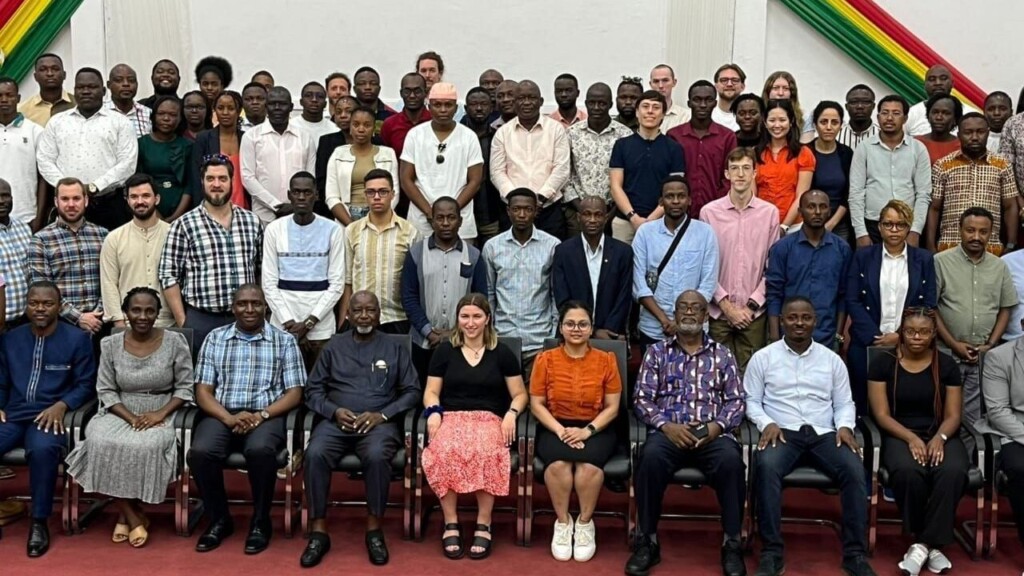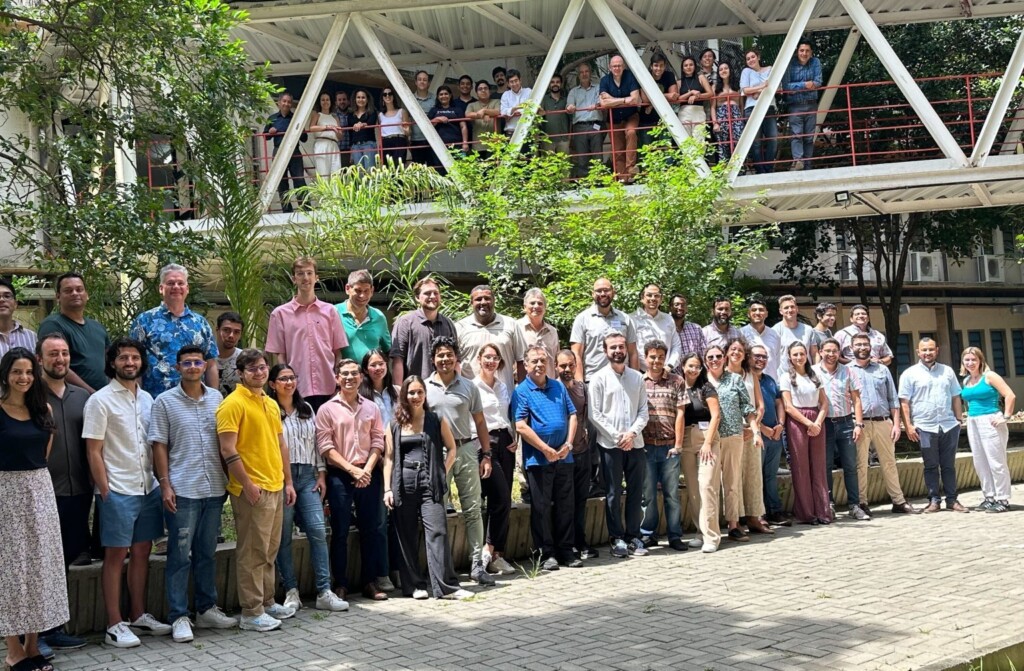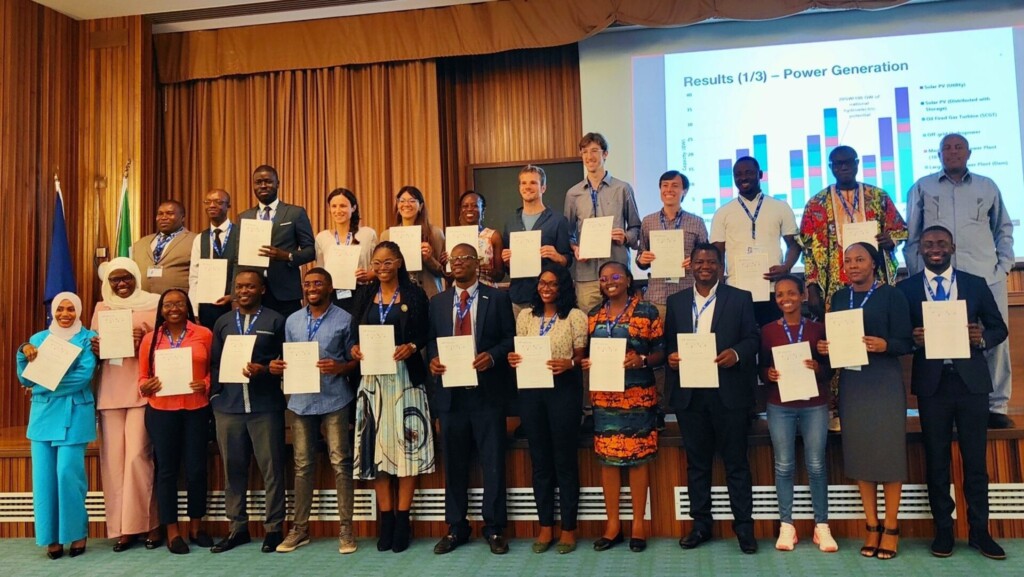EMP updates
Latest Events
Latest news from our Africa, Latin America and the Caribbean, Asia and the Pacific, and Global events.
Please note, applications for all EMPs of 2025 are now closed. Applications for EMP-LAC 2026 are open on 26 Jan, with exciting new opportunities for longer-term engagement.
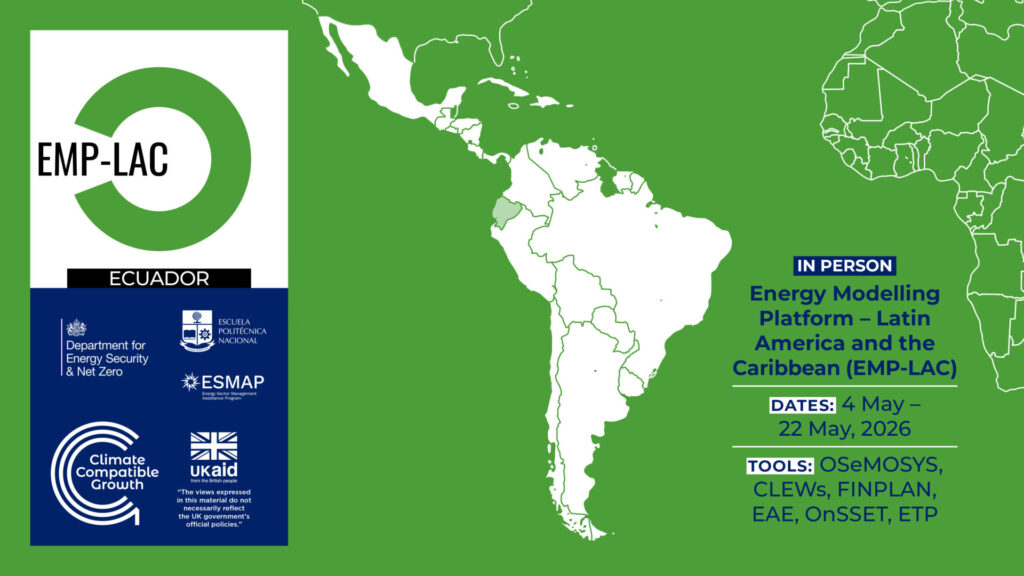
January 23, 2026
Energy Modelling Platform for Latin America and the Carribean (EMP-LAC) 2026
This is the fifth round of the Energy Modelling Platform for Latin America and the Caribbean (EMP-LAC), which started in 2022…
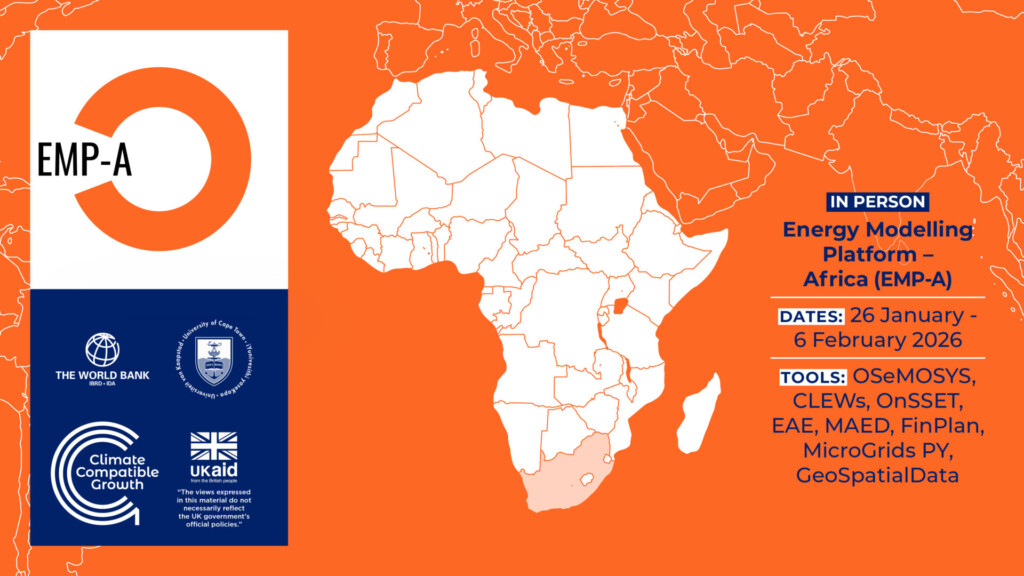
September 17, 2025
Energy Modelling Platform for Africa (EMP-A) 2026
This is the seventh round of the Energy Modelling Platform for Africa (EMP-A), which started in 2018 and aims to transfer ski…
Overview
The Energy Modelling Platforms (EMP) support academics, government analysts, and practitioners from the private sector in gaining practical skills on various energy modelling tools. Training is delivered by experts from international organisations and academics from the world’s top universities, and also covers complementary skills such as report writing, delivery of presentations, and effective communication with policymakers.
EMPs are a part of the wider capacity building ecosystem of CCG, supporting long-term capacity building interventions such as the Scholars’ Bootcamp, the Partners’ Bootcamp, the FlatPack Bootcamp, and the Data-to-Deal Bootcamp. For more information on the various Bootcamps, click here.
There are two modes of EMP attendance:
- One-off attendance, meaning that students come and attend a single course with no further commitment.
- Bootcamp attendance, meaning that students may attend one or more courses in the context of a commitment to apply the learning to achieve a particular longer-term outcome.
In future, most available slots on the EMP will be for Bootcamp participants, and slots for one-time attendance will be limited to participants with other sources of funding.
Interested applicants are therefore encouraged to consider participating as part of a Bootcamp. This will both increase the chance of selection and provide the benefits of a longer-term engagement with CCG, leading to tangible outcomes for participants and their host countries and institutions.
Co-Fund the Energy Modelling Platform
Since the start of the EMPs, organised by the OpTIMUS community before CCG was created, they have always been partnership based, co-funded events, with some events receiving up to 70% co-funding. Overall, co-funding has enabled EMP to reach at least twice as many participants as it would have without co-funding.
To date, our generous co-funders have included the World Bank (Energy Sector Management Assistance Program), the International Energy Agency, 2050 Pathways Platform, the Danish Energy Agency, Sustainable Energy for All, Department for Energy Security and Net Zero, the Asian Development Bank, and the United Nations Economic Commission for Africa.
We would encourage co-funders to consider directing their funding at the Bootcamp initiatives for longer-term impact, but if funding one-off attendance fits their programme objectives more closely, that is also very welcome.
For further information on how to support the EMP initiative or the Bootcamps, please contact Rudolf Yeganyan (r.yeganyan1@lboro.ac.uk).
Structure
Before joining the Energy Modelling Platform, whether under a Bootcamp or on a one-off basis, applicants must typically go through a rigorous screening process. As a part of this process, applicants must:
- Complete the Open University (OU) course of the tool in which they would like to be trained at the EMP and obtain a certificate
- Complete the ‘Modelling, Policy, and Political Economy’ course and obtain a certificate.
The certificates of both courses that the participants complete must be attached as a part of the application. For applications to Bootcamps, additional documentation is needed (please see the following page for details)
The actual EMP event is a three week-long training event, composed of one week of online training and two weeks of in-person training. The online training aims to consolidate the skills that the participants have obtained in completing the OU course. Then the in-person training can focus primarily on applying those technical skills to develop a case study comprising a specific policy application of relevance to their country.
To receive the EMP certificate of attendance, participants must successfully complete the case study, produce an associated written report, and make an oral presentation at the course forum. Successful completion of the EMP also qualifies participants to obtain Open University badges at Bronze level (where these exist for their respective tools) to use on LinkedIn as an indicator of their skills.
Testimonials
Meet the CCG OpenLearn Create Team

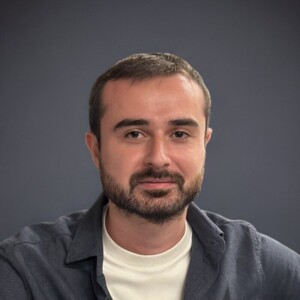
Partners
African Climate Policy Centre – United Nations Economic Commission for Africa (ACPC-UNECA)
Climate Compatible Growth Programme (#CCG)
Energy Sector Management Assistance Program (ESMAP)
Green Grid Initiative (GGI)
International Atomic Energy Agency (IAEA)
International Energy Agency (IEA)
International Renewable Energy Agency (IRENA)
Imperial College London (ICL)
Kartoza
KTH Royal Institute of Technology (KTH)
OpTIMUS Community of Practice
Politecnico Di Milano
Simon Fraser University
Sustainable Energy for All (SEforALL)
The Loughborough Centre for Sustainable Transitions: Energy, Environment, and Resilience (STEER)
United Kingdom Foreign, Commonwealth and Development Office (UK FCDO)
United Nations Department of Economic and Social Affairs (UNDESA)
United Nations Development Programme (UNDP)
University of Cambridge
University of Oxford
World Resource Institute (WRI)
World Bank Group (WBG)
2050 Pathways Platform

